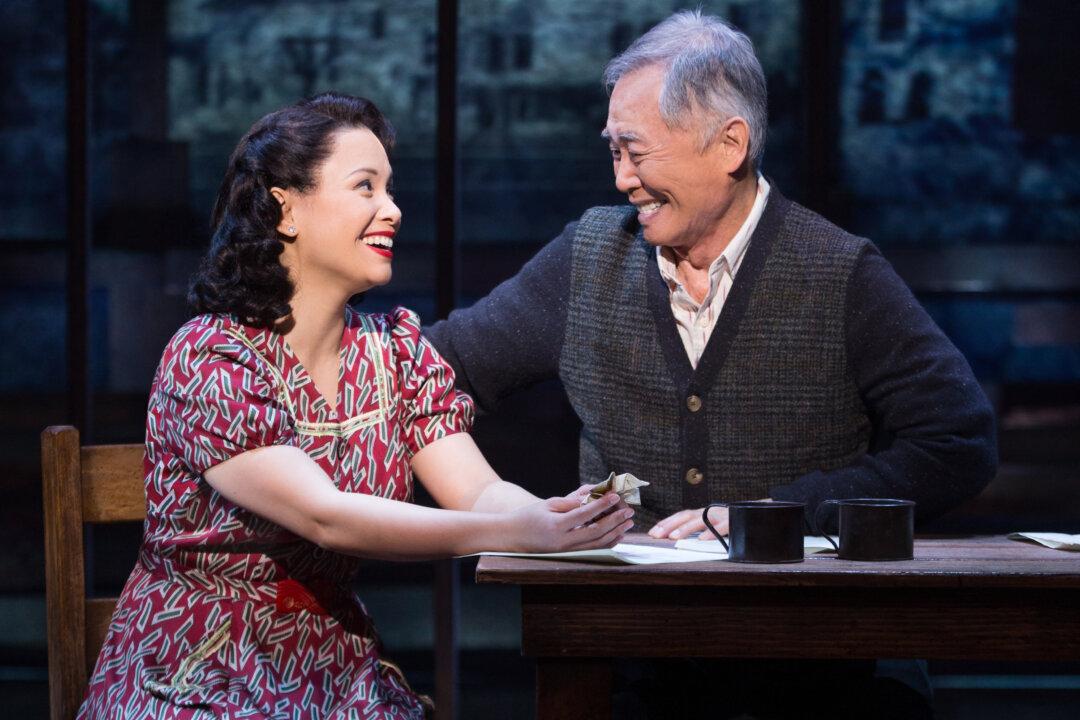NEW YORK—The new Broadway musical “Allegiance” shows that the importance of standing up for one’s beliefs must also be tempered with the need to understand and forgive those who don’t share your point of view. The show puts a human face on one of the most shameful incidents in recent American history: the forced internment of approximately 120,000 Japanese-Americans during World War II.

Lea Salonga and George Takei in "Allegiance," which exposes the plight of Japanese-Americans during their internment in World War II. Matthew Murphy





